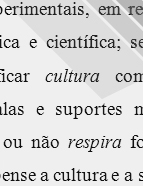

................................
Joaquim Barradas de Carvalho (1920-80), whose interest in the history of science (Esmeraldo in Situ Orbis by Duarte Pacheco, 1961; 1991; As invenções técnicas e a história da Humanidade [Technical Inventions and the History of Humanity], n.d.) did not overlook the correlation with Modern culture ([Portugal e as origens do pensamento Moderno[Portugal and the Origins of Modern Thought], 1980; O Renascimento Português [The Portuguese Renaissance] 1981), explores a sociological analysis of culture that brings him closer to Vítor de Sá (1921-2003), a major promoter of the History Centre at the University of Porto, where some influence of J. Carvalho is evident methodologically but not interpretatively (after Amorim Viana and Proudhon, 1960), less so in Óscar Lopes, who is attentive to the relative “superstructural” emancipation, as seen, most clearly, in Sá's Antero de Quental (2nd ed., 1977) compared to his Antero de Quental. Vida e legado de uma Utopia [Antero de Quental. Life and Legacy of a Utopia] (1983). Maria Helena da Rocha Pereira (b. 1925), without delving into hard historiography, in her notable lessons (Estudos de História da Cultura Clássica [Studies in the History of Classical Culture], I and II), anthologies, and translations, establishes a unique framework for the study of classical, modern, and contemporary culture (hence the wise forays into Camões and Pessoa), demanding an education that does not degrade humanistic studies curricularly, and in them, the broad cultural vision that all historiography requires.
J. S. Silva Dias (1916-1994), initially in Coimbra (1958-79) and later at the Universidade Nova de Lisboa (FCSH, 1980-86, where he founded the journal Cultura – História e Filosofia [Culture- History and Philosophy]), tended to interpret cultural history as the history of ideas, i.e., the major ideological movements (political, religious, philosophical, artistic), in analogy or affinity with German philosophical and cultural historiography, initiated by L. Fèbvre in his monumental study of Luther. Specifically, at Coimbra, he pioneered courses introduced in the 1957 university reform, which for the first time—though J. Carvalho’s tutelage had paved the way-aimed at the methodological and epistemic autonomy, in historiographical terms, of cultural history (History of Portuguese Culture, History of Modern Culture; Seminar of Portuguese Culture), a project which, after the 25th of April 1974, enabled him to found and consolidate the Institute of History and Theory of Ideas (FLUC) and the influential Revista de História das Ideias [Journal of the History of Ideas](1977), today directed by F. Catroga.
